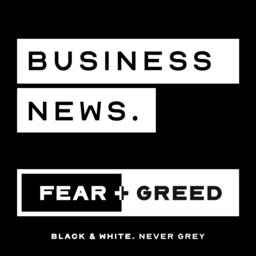Interview: Fear & Greed's guide to the 2025 Budget
It was a Budget light on reform, perhaps unsurprising since the government hadn't wanted to deliver one at all. But when Tropical Cyclone Alfred scuppered plans to call an election, it confirmed that Treasurer Jim Chalmers would be delivering a rare fourth budget in the three year term.
Fear & Greed's resident economist Stephen Koukoulas, Managing Director of Market Economics and a former economic adviser to a Prime Minister, joins Sean Aylmer to analyse the Budget, including what it tells us about the outlook for the economy.
In 1 playlist(s)
FEAR & GREED | Business News
Daily business news for people who make their own decisions, with business journalist Sean Aylmer an…Social links
Follow podcast
Recent clips

Hate legislation on shaky ground; air traffic chaos; Hollywood’s highest grossing actor
15:36

Our $9 billion export that nobody talks about
05:54

Alphabet hits $US4 trillion; Coalition baulks at hate laws; record year for ETFs
16:08
 FEAR & GREED | Business News
FEAR & GREED | Business News